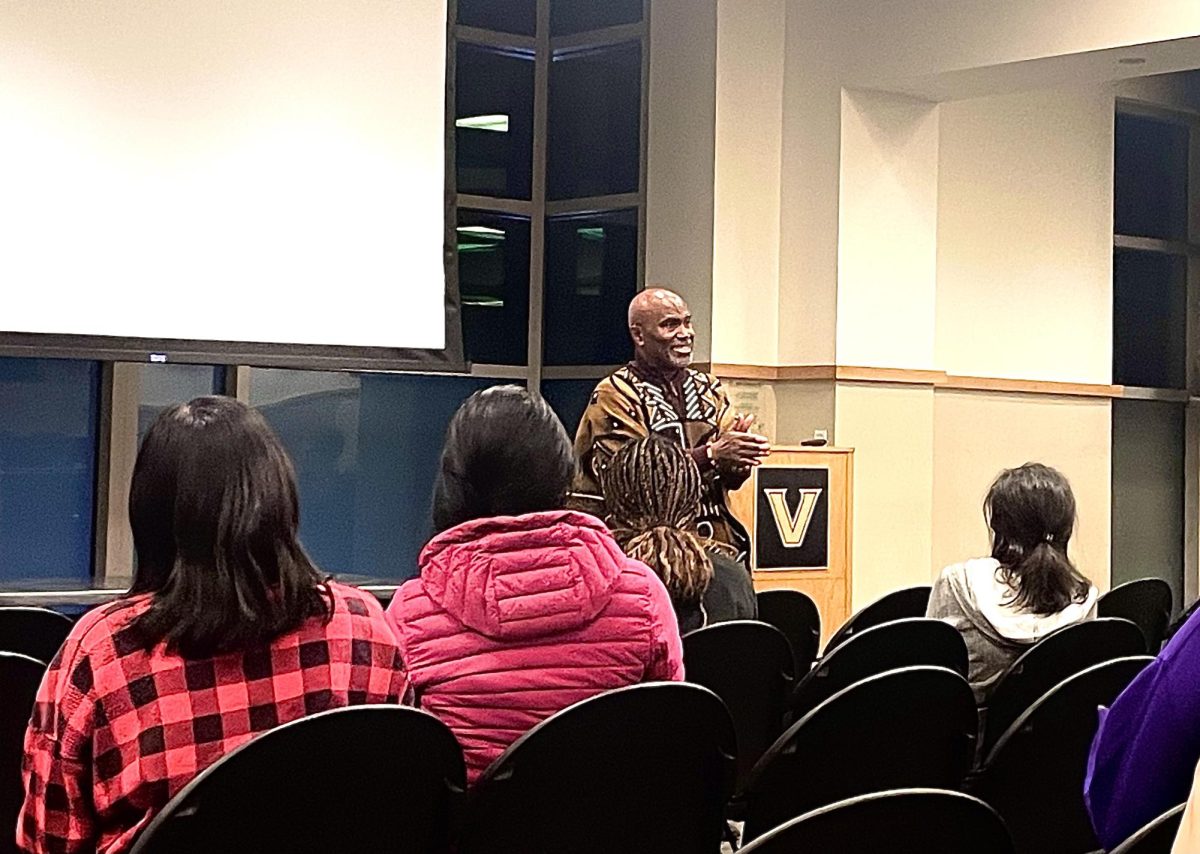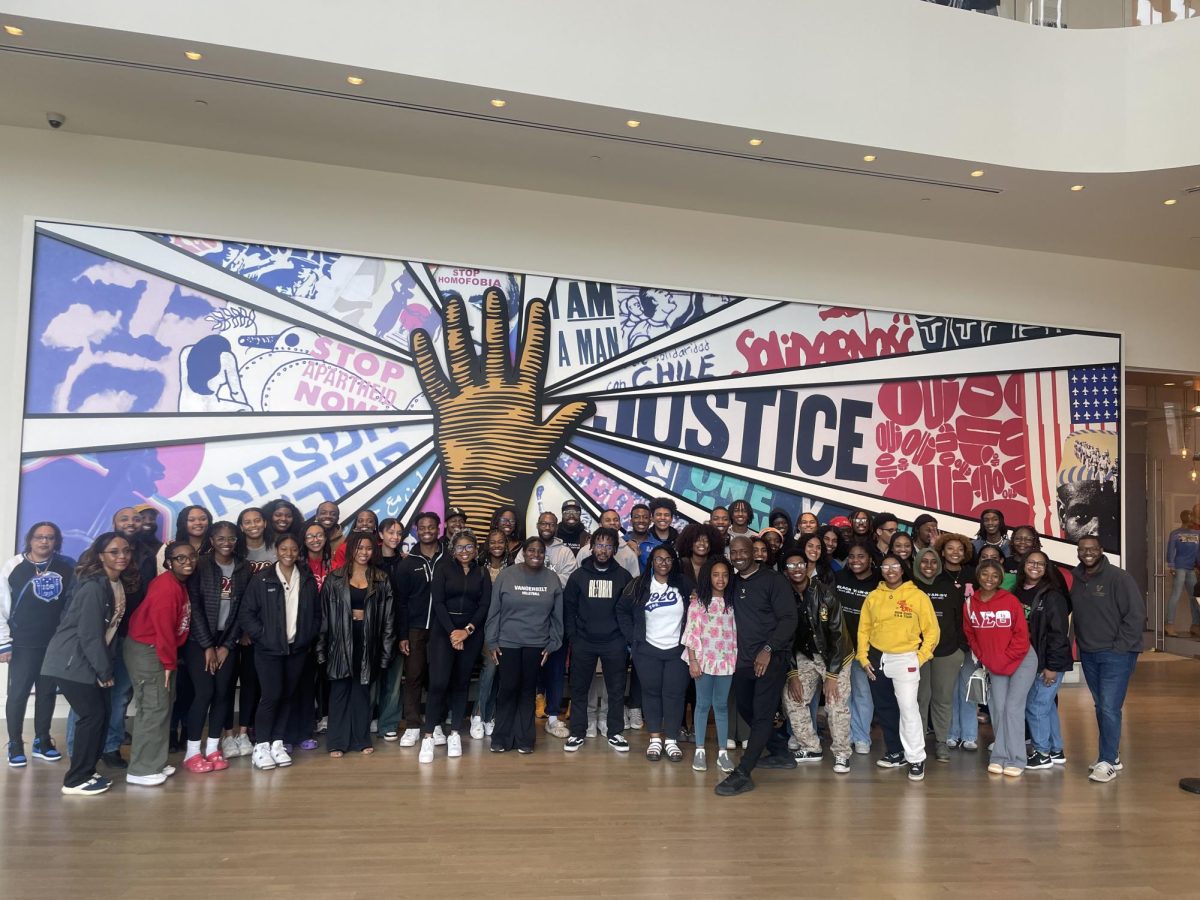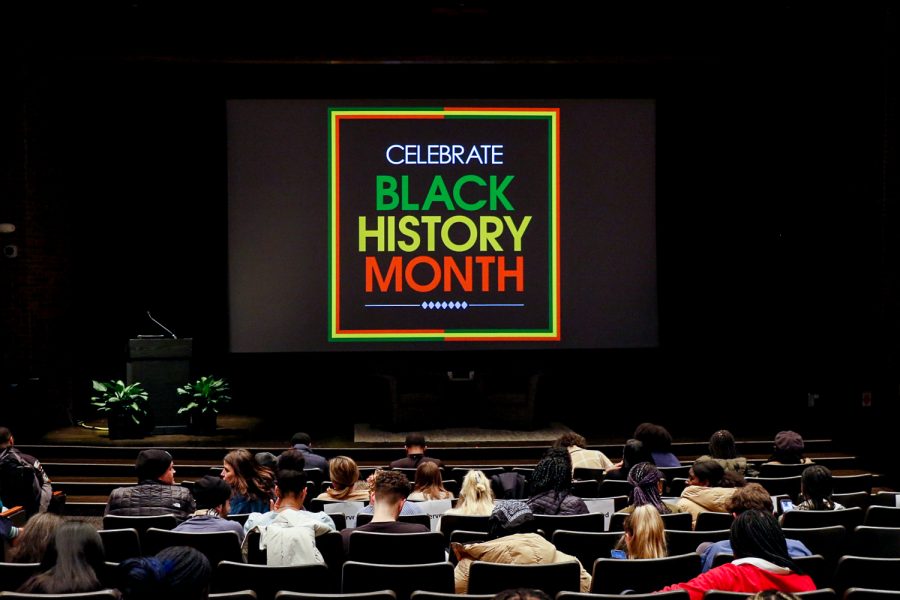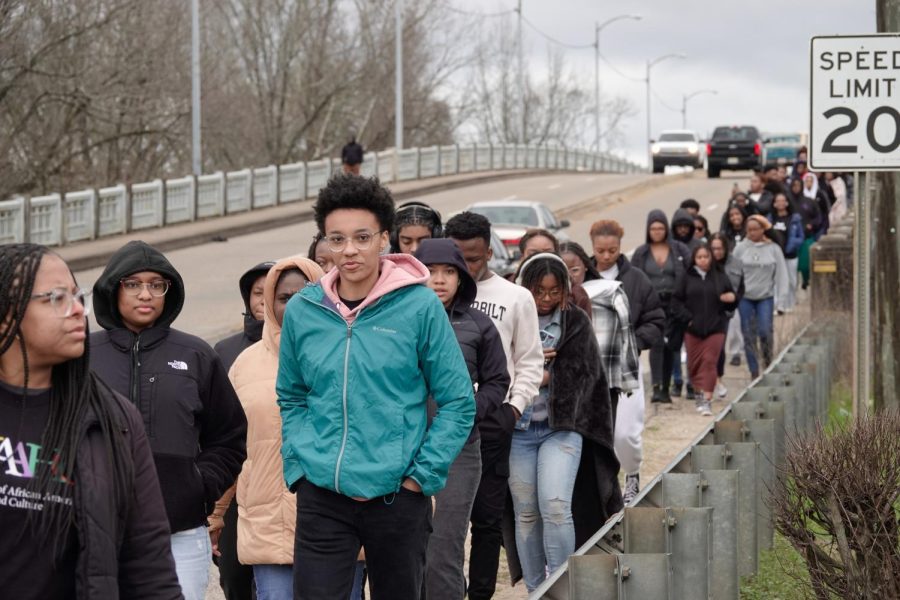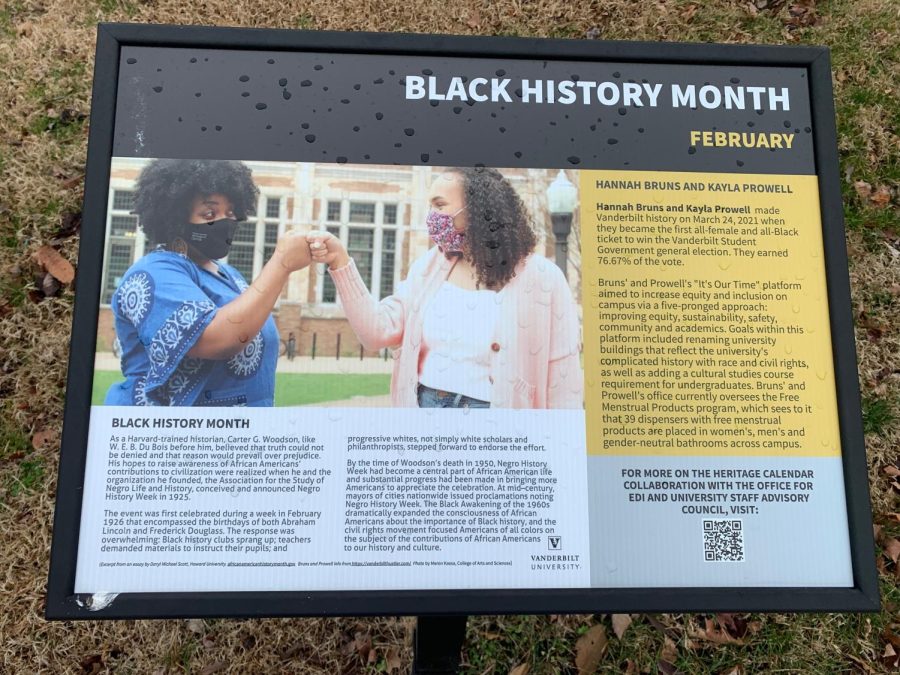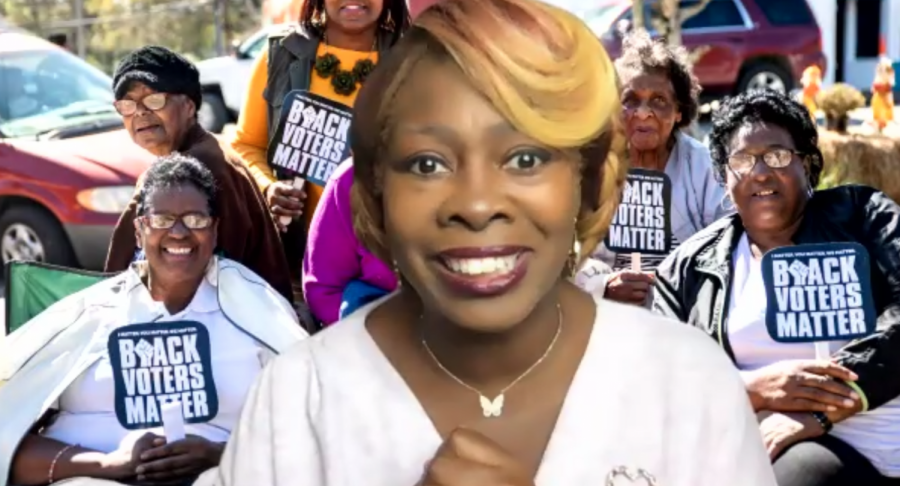Daniel Black, author and professor of African American studies at Clark Atlanta University, delivered the 16th annual Murray Lecture at the Commons Center on Feb. 7. Hosted by the Martha Rivers Ingram Commons and Black Cultural Center, the event is among the first in this year’s lineup of Black History Month programming.
Black is the winner of the Distinguished Writer Award from the Middle-Atlantic Writer’s Association and has been nominated for the Townsend Prize for Fiction, the Ernest J. Gaines Award and the Georgia Author of the Year Award. The Murray Lecture is hosted annually in honor of Reverend Walter Murray, a Nashville native and one of Vanderbilt’s first African American undergraduates — as well as the first African American to serve on Vanderbilt’s Board of Trust.
Black began the lecture by reading aloud an excerpt from his 2014 book “The Coming,” an imagined account of Africans’ enslavement and journey along the Middle Passage. Through lyrical prose and the perspective of “we,” Black explores the harrowing trek of those who were captured and their means of survival aboard the slave ships that transported them to modern-day Charleston, S.C.
“Those who survived did not mourn. There was no time. The loss was too great,” Black said. “We still have not mourned. We still have no time. We remember, but we have not mourned.”
Maintaining culture and identity
Describing the experiences of Africans along the Middle Passage in his novel, Black explained that, after the 63rd day, the men and women began a “collective ritual” of shouting their names to announce who among them remained alive.
“Someone would beat his place like a drum and say his own name three times. That was the sign,” Black said. “Then the rest of us would join in and speak our names, both to the water and to the wind. Clear signs that yes, some had died — but not all.”
As for how he knew the names of the Africans who had been enslaved, Black rhetorically asked the audience what they presumed the names of sixteenth-century English men and women to be, to which the crowd shouted the likes of John, William and Elizabeth.
“If you go to 16th century Africa, why would you assume that they would have the same names that we have? Why would you assume that?” Black said. “Because you’d also render them humanity.”
Black pushed back against those who argue that the slave trade destroyed African culture, asserting instead that, as long as the people survived, the culture survived with them.
“Culture is not on you, it’s in you. It’s what you do, it’s how you be, it’s what you is,” Black said.
Writing as moral responsibility
Black also shared an essay he wrote on his motivations for writing, framing the profession as his “duty of setting the world free.”
“I write because we rape. I write because we hurt. I write because some pain can’t be described,” Black said. “It can only be felt in the marrow of a story or the lyrics of a song.”
He further said he writes to rectify America’s “lies” about Black power and Black excellence.
“America lies. It says Black men don’t love Black men. It says Black and white and others cannot get along in the same room,” Black said. “It needs these lies in order to boast itself as the best country on the planet. That too is a lie, although it could be true if America ever admitted who built the damn place.”
Black culture in America
Black fielded questions from the audience for the latter part of his lecture. One attendee asked about the apparent divide between Black culture in the U.S. and African culture, which Black admitted he sees as a problem.
“Many of us go to Africa as a visitor, and when we get there, brothers and sisters who were preparing for our homecoming are hurt and insulted because we now expect them to treat us like guests,” Black said. “But we’re not guests; we’re going home.”
Another student asked for Black’s take on the appropriation of Black culture that the student witnessed while attending high school in Atlanta. Black cited the real “crime” as Black people’s retaliation for this appropriation.
“If Black people truly understood the depth of their creative genius, you can have what I did yesterday, take it,” Black said. “Because what I’m going to do tomorrow is going to really blow you away. Really, [what I did yesterday] is the lesser me.”
Speaking on innovation and creativity, Black referenced “manifestations of Black brilliance” that he believes have gone “completely unrecognized.” He reminded the audience that the geniuses of Toni Morrison and Katherine Johnson had to have teachers, too, but that the latter often went unnoticed due to the lack of formal degrees bestowed upon Black academics.
“This is the mirror of Black life in America, where the nuances of our life you cannot read upon our being,” Black said. “But it’s in the flavor of our existence.”
Continuing traditions
He further urged Black students to recognize the ancestors whose sacrifice and perseverance paved the way for their place at institutions of higher learning, like Vanderbilt.
“When you get that, what you understand is that you’re part of a lineage, part of a legacy. You’re part of a tradition,” Black said. “In that tradition, you inherit greatness. Greatness is your very bloodright.”
Another audience member expressed concern for the loss of pre-colonial African stories and other narratives, to which Black urged a return to the practice of reading aloud.
“[Reading aloud] allows us to enter imaginative space together. Whereby the limitations of our being, we can escape from for a minute. And people can see the excellence of our hearts and our souls without always struggling with the limitations of our physical reality,” Black said.
First-year Devin Crawford described Black’s reading aloud as “beautiful” and encouraged his peers to attend such events to learn about Black and African history.
“Sitting down and listening to the words being spoken was more surreal than anything that you could have read on a piece of paper,” Crawford said.
Brinnan Smith, also a first-year, called the lecture one of the most “interesting, intriguing and inspiring” conversations he has attended.
“Professor Black was one of the best speakers, one of the most passionate speakers. He was a speaker who really showed what it means to not only be a person but to be human, and that really struck home with me,” Smith said.

